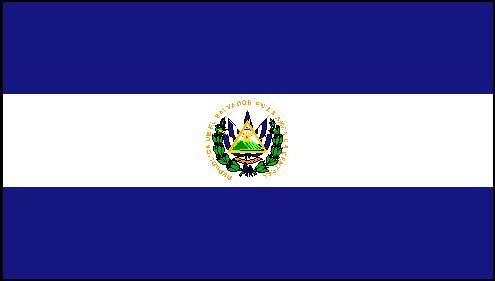
On Monday the U.S. Department of Homeland Security (DHS) announced the termination of the Temporary Protected Status (TPS) designation for El Salvador. In turn, the government of El Salvador published its own press release regarding the announcement.
Below is a translation of the press release published by the foreign ministry of El Salvador:
The Government of El Salvador received this day the corresponding official announcement by the Department of Homelamd Security of the United States of America (DHS, by its acronym in English), through which the extension to the Temporary Protected Status (TPS), for a period of 18 months, valid until September 9, 2019, was communicated.
Given this, the administration of President Salvador Sánchez Ceren believes that this decision is recognition of the contribution of our nationals who [benefit from TPS], being an important workforce in that country and making relevant contributions in other areas such as economic, cultural, and social.
Likewise, the Salvadoran Government expresses its gratitude to the Government of the United States for this announcement, which reaffirms the strong bonds of friendship and cooperation that they maintain as historical partners.
This extension is also the result of the actions carried out by various sectors, which along with the Foreign Ministry of El Salvador developed an intense effort in favor of our fellow citizens. In that regard, the [government] also expresses gratitude to the numerous U.S. officials at the federal, local, and state levels who supported this effort, as well as to organizations that work for the rights of migrants, church representatives, think tanks, and trade unions, among other entities that also joined the appeals to achieve a renewal of TPS.
Finally, the Government of El Salvador reiterates its commitment to our nationals in the search for alternatives that, through the U.S. Congress, allow them to have migratory stability in that country.
Overall, the Salvadoran government has taken a positive tone regarding the decision made by DHS. The language used to address the 18-month period prior to September 9, 2019, is worth noting. While El Salvador calls the decision an 18-month “extension” and “renewal”, DHS refers to it is a “delay” to the ”termination” of the designation. The former clearly paints the situation in a more optimistic light. The difference in diction is understandable, given the two governments’ respective audiences. After months of publicizing its efforts to find a resolution for TPS beneficiaries, the Salvadoran government wants to portray the 18-month period as an accomplishment.
In a press conference held Monday with the U.S. ambassador, El Salvador’s foreign minister stated, “We have achieved 18 more months for the TPS of our nationals.” (Emphasis added.) Like in the press release above, the foreign minister further characterized the announcement as a result of the extensive advocacy efforts carried out in the United States by various entities and the favorable relationship between the two countries. The minister went on to emphasize that El Salvador received an 18-month grace period (the longest permitted under legislation), in comparison to the six and 12 months received by Honduras and Haiti, respectively.
Providing further assurance to the Salvadoran public, the government of El Salvador emphasized that it would continue to seek a permanent solution for TPS beneficiaries. As such, the government said it will work with the U.S. Congress and other officials to pass legislation that would provide permanent residence for those with TPS. On this point, the Salvadoran minister has previously made reference to the 1990’s Nicaraguan Adjustment and Central American Relief Act (NACARA) as precedent for legalizing TPS beneficiaries:
What the NACARA law recognized was that many people had lived and worked here in the United States with a legal document that the government had extended to them. The same thing happens with these Salvadorans who have more than sixteen years of living and working here in the United States with a legal document that the United States government has extended to them. And it is based on that legality that we are asking they be given the bridge between TPS and residency. Of course they will have to meet requirements, follow a procedure. But the goal is to, ideally, reach [permanent residence].
NACARA was passed in 1997 and gave legal status to approximately one million illegal aliens, mostly from Central America, who had lived in the United States since 1995.
The Salvadoran government’s response stands in great contrast to that of the mainstream media and immigration advocates in the United States, who immediately criticized the decision to end El Salvador’s protected status. The Salvadoran government’s response suggests it does not think the time for panic mode has arrived yet. As noted in its press release, it hopes Congress will provide permanent residence to TPS beneficiaries before the September 2019 deadline.
Click HERE to view more.
You can publish this article on your website as long as you provide a link back to this page.

Be the first to comment